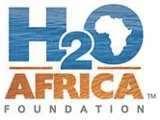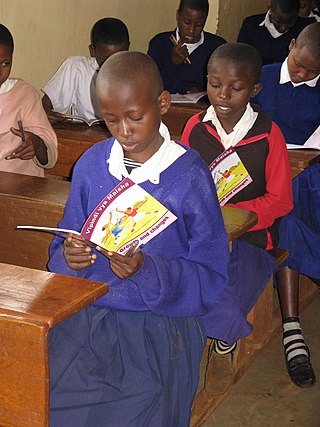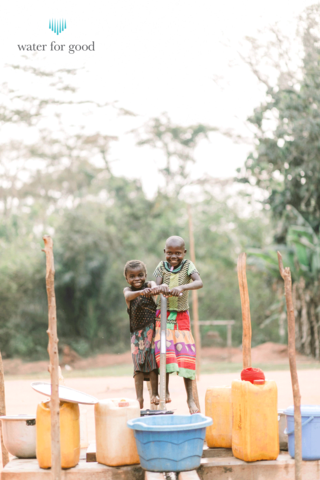
Hygiene is a set of practices performed to preserve health. According to the World Health Organization (WHO), "Hygiene refers to conditions and practices that help to maintain health and prevent the spread of diseases." Personal hygiene refers to maintaining the body's cleanliness. Hygiene activities can be grouped into the following: home and everyday hygiene, personal hygiene, medical hygiene, sleep hygiene, and food hygiene. Home and every day hygiene includes hand washing, respiratory hygiene, food hygiene at home, hygiene in the kitchen, hygiene in the bathroom, laundry hygiene,and medical hygiene at home.And also environmental hygiene in the society to prevent all kinds of bacterias from penetrating into our homes.

Sanitation refers to public health conditions related to clean drinking water and treatment and disposal of human excreta and sewage. Preventing human contact with feces is part of sanitation, as is hand washing with soap. Sanitation systems aim to protect human health by providing a clean environment that will stop the transmission of disease, especially through the fecal–oral route. For example, diarrhea, a main cause of malnutrition and stunted growth in children, can be reduced through adequate sanitation. There are many other diseases which are easily transmitted in communities that have low levels of sanitation, such as ascariasis, cholera, hepatitis, polio, schistosomiasis, and trachoma, to name just a few.

WaterAid is an international non-governmental organization, focused on water, sanitation and hygiene. It was set up in 1981 as a response to the UN International Drinking Water decade (1981–1990). As of 2018, it was operating in 34 countries.
Blood:Water Mission is an international nonprofit that partners with African community-driven organizations to end health disparities caused by the HIV/AIDS and water crises. It is based in Nashville, Tennessee, US, and is led by Jake Smith.

The Samburu Project (TSP) is a 501(c)(3) non-profit organization based in Los Angeles, California, founded on the promise of delivering access to clean water to the Samburu pastoralist community in northern Kenya. Since its inception, the Samburu Project has drilled 137 wells, that currently provide water to over 100,000 Samburu individuals. The organization is recognized as both a Non-Governmental Organization (NGO) and a Community Based Organization (CBO) in Kenya.

The H2O Africa Foundation was an NGO founded by Matt Damon to raise awareness about clean water initiatives in Africa. It was part of the Running the Sahara expedition and documentary project undertaken by Damon, James Moll, LivePlanet, and the Independent Producers Alliance. In July 2009, the H2O Africa Foundation merged with WaterPartners to form Water.org, an organization co-founded by Matt Damon and Gary White of WaterPartners.

Lifewater International is a non-profit Christian water development organization serving the world's rural poor through integrated water, sanitation, and hygiene programs. In 47 years, Lifewater has served over 3 million people in 45 countries.

WaterPartners International was an American nonprofit developmental aid organization tasked with the specific purpose of providing safe drinking water and sanitation to people in developing countries. Founded in 1990, it has since provided safe drinking water and sanitation to more than 200 communities in eight countries – Bangladesh, El Salvador, Ethiopia, Honduras, Guatemala, India, Kenya, and the Philippines. The organization's co-founder and current executive director Gary White is also a founding board member of the Global Water Challenge and Water Advocates.
Drinking water supply and sanitation in Pakistan is characterized by some achievements and many challenges. In 2020, 68% Pakistanis, 72% Indians, 54% Bangladeshi had access to the basic sanitation facilities. Despite high population growth the country has increased the share of the population with access to an improved water source from 85% in 1990 to 92% in 2010, although this does not necessarily mean that the water from these sources is safe to drink. The share with access to improved sanitation increased from 27% to 38% during the same period, according to the Joint Monitoring Program for Water Supply and Sanitation. There has also been considerable innovation at the grass-root level, in particular concerning sanitation. The Orangi Pilot Project in Karachi and community-led total sanitation in rural areas are two examples of such innovation.
Water for South Sudan is an American nonprofit 501(c)(3) corporation founded in 2003 to drill wells, deliver hygiene education, and provide sanitation services to South Sudan.
Charity: water is a non-profit organization founded in 2006 that provides drinking water to people in developing nations. As of 2019, the organization has raised $370 million. According to the organization, by October 2024, it has funded more than 171,000 projects in 29 countries though it does not know how many of the projects are still functional.

Water.org is an international nonprofit organization that helps people living in poverty get access to safe water and improved sanitation through affordable financing. This organization was founded by Matt Damon and Gary White.

WASH is a sector focused on providing water, sanitation, and hygiene services. It aims to achieve public health gains, uphold the human right to water and sanitation, reduce the burden of collecting drinking water, and improve health and education outcomes. Access to WASH services is critical for sustainable development and is integral to achieving Sustainable Development Goal 6, which targets equitable access to water and sanitation for all. Despite progress, billions still lack basic sanitation and clean drinking water, making WASH a vital focus for international development.
Water supply and sanitation in Zimbabwe is defined by many small scale successful programs but also by a general lack of improved water and sanitation systems for the majority of Zimbabwe. Water supply and sanitation in Zimbabwe faces significant challenges, marked by both successful localized efforts and widespread deficiencies in infrastructure. According to the 2019 Multiple Indicator Cluster Surveys (MICS), conducted by UNICEF, disparities persist in access to clean drinking water and sanitation facilities. While overall access to improved drinking water sources increased to 77.1% in 2019 from 76.1% in 2014, significant gaps remain between urban and rural areas, as well as within urban centers. For instance, 97.3% of urban households have access to improved water sources compared to only 67.9% of rural households. Similarly, disparities exist across regions, with Harare boasting the highest access at 96.6%, contrasting sharply with 64.8% in Matabeleland South. Additionally, approximately 67.8% of households have access to improved, non-shared sanitation facilities, indicating ongoing challenges in this domain. Urban areas, in particular, grapple with chronic water shortages amid rising consumption demands. There are many factors which continue to determine the nature, for the foreseeable future, of water supply and sanitation in Zimbabwe. Three major factors are the severely depressed state of the Zimbabwean economy, the willingness of foreign aid organizations to build and finance infrastructure projects, and the political stability of the Zimbabwean state.

Community health clubs (CHCs) also known as community hygiene clubs are voluntary community-based organizations in Africa dedicated to improving public health through the promotion of hygiene. CHCs are formed at the village level. The concept was developed and popularized by Africa AHEAD, a Zimbabwe NGO.

Sustainable Development Goal 6 declares the importance of achieving "clean water and sanitation for all". It is one of the 17 Sustainable Development Goals established by the United Nations General Assembly to succeed the former Millennium Development Goals (MDGs). According to the United Nations, the overall goal is to: "Ensure availability and sustainable management of water and sanitation for all." The goal has eight targets to be achieved by 2030 covering the main areas of water supply and sanitation and sustainable water resource management. Progress toward the targets will be measured by using eleven indicators.
"Wells of Life (WOL) is a 501(c)(3) [faith-based] non-profit organization whose aim is to provide rural Ugandans access to safe and clean water. Their primary methods include installing sustainable borehole water wells and educating local communities on sustainable hygiene and water supply practices. It was founded in 2008 and has funded over 1,300 wells, primarily in the Mityana, Kassanda and Mubende regions of Uganda, all of which collectively serve more than 1,300,000 people. It is based in San Juan Capistrano, California and has built its headquarters in Mityana, Uganda. In 2018, Wells of Life founded its Irish counterpart, Wells of Life Ireland.

Menstrual hygiene management (MHM) or menstrual health and hygiene (MHH) refers to access to menstrual hygiene products to absorb or collect the flow of blood during menstruation, privacy to change the materials, and access to facilities to dispose of used menstrual management materials. It can also include the "broader systemic factors that link menstruation with health, well-being, gender equality, education, equity, empowerment, and rights". Menstrual hygiene management can be particularly challenging for girls and women in developing countries, where clean water and toilet facilities are often inadequate. Menstrual waste is largely ignored in schools in developing countries, despite it being a significant problem. Menstruation can be a barrier to education for many girls, as a lack of effective sanitary products restricts girls' involvement in educational and social activities.

Water for Good is a non-profit organization founded in 2004 that provides clean water to communities in the Central African Republic. In 2019, the organization provided water for over 600,000 rural water users through over 1,700 unique water points. Water for Good's approach focuses on maintaining well-functionality; 95% of its wells remained fully operational in 2019. Its current focus is on ending water poverty in the Central African Republic by 2030.













